Gambling regulation in Latin America
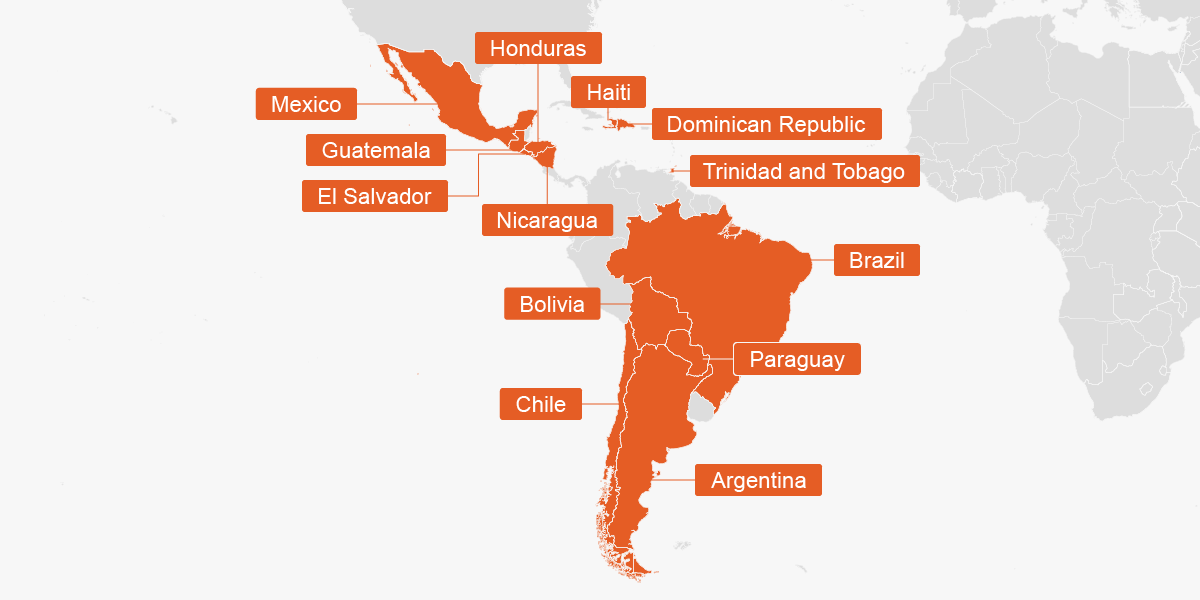
Microgaming puts LatAm at the centre of global expansion. Taken from a gambling news agency, the title shows very clearly the future of online gaming. When an industry giant such as Microgaming focuses on Latin America, then is more than certain that others will follow in this unexploited virtual land. The investors see the chance. But they also see the problem with online gambling regulation. Or the lack of it. Or in some cases, the betting laws are so complicated that cause much more problems than the ones that would supposedly be solved.
But still, the interest remains unchanged. Simply because there is a huge potential on this market. This will help all the involved parties realise that Latin America’s online gambling regulation with what is accustomed to the rest of the world would be for the benefit of all. In the upcoming lines, as well as in the inner Brokerstorm.net pages you may find out everything you have been looking for according to the Latin American countries and their Gambling regulation.
Online gambling regulation in Lat.Am.
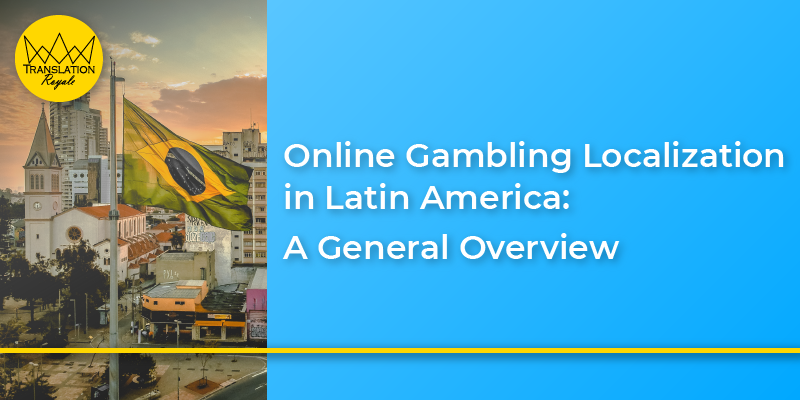 Like a jigsaw. Actually, like many pieces of different puzzles all put in a box. The variance of gambling regulation is simply amazing. Conversely to what happens in Europe where all regulators have more or less the same approach, in Latin America the landscape seems very different.
Like a jigsaw. Actually, like many pieces of different puzzles all put in a box. The variance of gambling regulation is simply amazing. Conversely to what happens in Europe where all regulators have more or less the same approach, in Latin America the landscape seems very different.
For instance, you have a neat example of Colombia and the Dominican Republic. In both of them, everything is under the agreement. At least in legal terms. The online gambling market is very well regulated and if there is a need the state is always there to make the changes to the gambling regulation.
There are some cases where betting laws don’t even exist. Either because gambling activities are out of the picture. Bolivia for example prohibits betting. Of course, there are also cases of some countries that made their first small steps in this area.
Panama, Paraguay and Costa Rica are not yet into online gambling. But they are eager to learn and take the example of their nearby countries. They have in mind that they should adopt a modern internet gambling regulation. They have a strong motivation to do so. And it is no other than the taxes they intend to collect. In some cases like Costa Rica, the government plans to fund social programs with that money.
Besides taxes, governments foresee that as long as the gambling market remains without rules it will be a great encouragement for criminal activities. In that way, they lose lots of money to the black market. That’s the reason why Argentina decided it is time to establish a gambling regulation. But they did it in the most peculiar way.
Each and every Provident of the country can make their own Gambling regulation. Without taking into consideration what is valid or not to a different or neighboured providence. More than half of them have already enforced their online gambling laws. The rest expect to follow near soon.
Real soon we will have a betting law in Peru. Gambling is allowed in this country… but not officially. Operators have no problem with that, but they will most definitely prefer certain rules to define the way the market works.
And finally the biggest country in the region, Brazil. Legislators have the will, but they also have many problems to overcome. Social perception in addition to religious beliefs makes them work hard. But where there is a will, there is a way. And Brazilians have a will.
Latin America is a promising market for betting providers. Besides this mosaic of different laws scattered in this corner of the world, modern-day Eldorado waits for its conquistadors.
Brazil gambling regulation
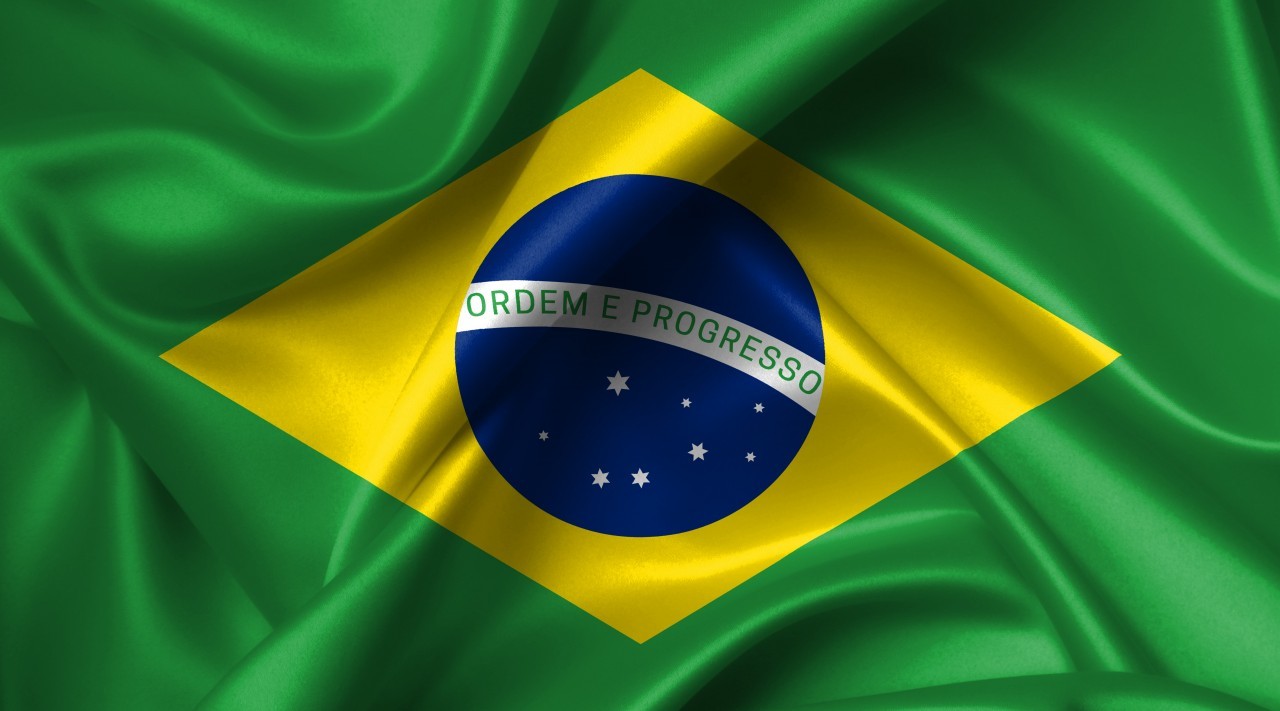 Gambling regulation in Brazil was a great issue. And the subject of an endless debate. Starting from the very definition of the words “gambling”, “bet”, “game” and “games of chance” legislators struggle to find a common ground and put those words into a formal paper that would be the county’s new online gambling laws.
Gambling regulation in Brazil was a great issue. And the subject of an endless debate. Starting from the very definition of the words “gambling”, “bet”, “game” and “games of chance” legislators struggle to find a common ground and put those words into a formal paper that would be the county’s new online gambling laws.
You see in Brazil since the 1940’s gambling – with the exception of state-owned lotteries and horse-race wagering – was prohibited. Thus betting laws in Brazil are still in very early stages. Legislators have to fight with two strong beliefs, deeply rooted in people’s beliefs. That gambling activities prevent people from working and offering to their families or country and that people involved with gambling are using it for money laundering and several other criminal acts. In addition to the religious belief that gambling is somehow disproved by God’s rules, then you get the picture.
The last obstacle seems to be the toughest. Those legislators who originated from the Evangelistic party will not help pass online gambling regulation. Or any other relevant regulation as a matter of fact.
In the past few years, things are changing fast in Brazil. Initially, it was Law No 13,155/2015 that opened the Brazilian gambling market. Followed by Law 13,756/2018 which set the rules for fixed-odds sports betting Brazil start moving forward. The internet gambling regulation would be a fact now, but due to the Covid-19 pandemic causes, there was a major setback. The Ministry of Economy is making efforts to enact this Gambling regulation in the first semester of 2022, or in any case enough time before the Fifa World Cup in Qatar (December of 2022).
Overall the betting market in Brazil is widely considered active and healthy. And the legislation is far less complicated than in other countries in the region due to Law 13,756/2018.
Online gambling laws in Argentina
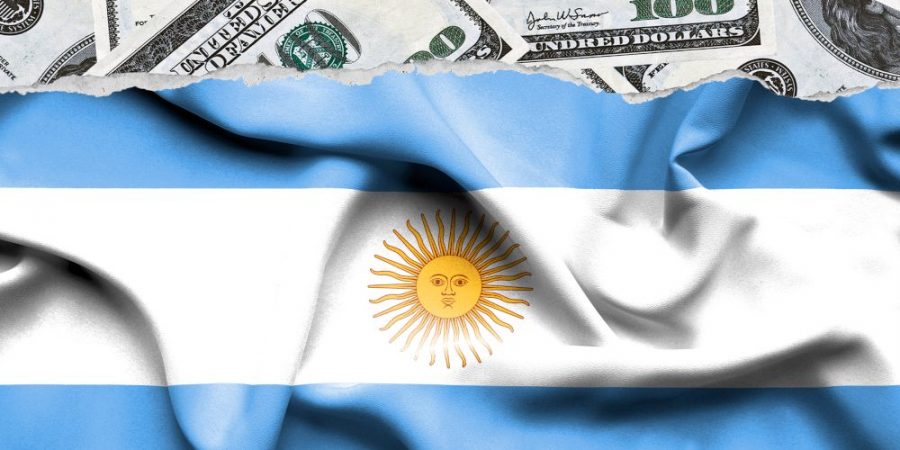 If you are familiar with the regulation progress in the United States of America then you won’t have any problem understanding what is happening in Argentina in the field of gambling regulation. If you don’t, pay close attention because things are rather complex in this country.
If you are familiar with the regulation progress in the United States of America then you won’t have any problem understanding what is happening in Argentina in the field of gambling regulation. If you don’t, pay close attention because things are rather complex in this country.
Argentina is organised in a federal model, just like the U.S. But unlikely what happens in the States, the federal government allows the autonomous regions to decide themselves if they want to legalize online gambling and form the needed Betting Laws as they wish. And there are 23 autonomous regions plus Buenos Aires which is an autonomous Metropolitan Municipality. But there is the willingness of all to change it. And finally, establish a new regulated field in this country. By now the general rule can be described as this “unless expressly authorised by competent authorities, gambling and gaming are prohibited”.
But as years were passing by and the existing model doesn’t seem to work for anyone – black market excluded of course – the need for legalizing the market was more vital than ever. Already 14 of the 24 jurisdictions have set a Gambling regulation. But here is the thing. As mentioned before there is no general idea or direction so every jurisdiction does as it pleases. For example, some require international operators to have a local base. In other provinces, they don’t.
And the variation of the online gambling regulation doesn’t stop here. Take for example the duration of provided licenses. If you hold a gambling license in the City of Buenos Aires then you know that this will last for five years. And you can only renew it for another five. But only a few kilometres further, in the Providence of Buenos Aires online gaming licenses, are valid for 15 years. Niote that the operators shall not renew those licenses.
Last but not least is the tax issue. In Argentina, there are three taxation levels. The federal. the provincial and the municipal. But a company based in the City of Buenos Aires will have to pay only the two of them (federal and provincial), a company based in the Providence of Cordoba for example will have to pay them all.
Undoubtedly, the Argentinian online gambling market holds huge potential. And this is the reason why many experts insist that the biggest need for the country is to have an undivided internet gambling regulation. This phenomenon might be unique on a global scale, but it is certainly not friendly for investors.
Internet gambling regulation in Chile
 After years of consideration and one year of consultation, Chile started regulating its online gambling market in March 2022. The Minister of Finance announced one year earlier the bill that would set some rules for an ever-growing market . His initial goal was to introduce the bill in the first quarter of 2021. But there were too many things the Minister should take under consideration.
After years of consideration and one year of consultation, Chile started regulating its online gambling market in March 2022. The Minister of Finance announced one year earlier the bill that would set some rules for an ever-growing market . His initial goal was to introduce the bill in the first quarter of 2021. But there were too many things the Minister should take under consideration.
And finally, the bill that would settle the internet gambling regulation came to light only after the top national football clubs had as the main sponsors on their jerseys bookmakers. They announced long-term deals and given that at this point there wasn’t any online gambling regulation, something had to be done and had to be done quickly.
Until then all online providers were illegal, as they didn’t get authorization by the State. The Superintendencia de Casinos renamed to Superintendencia de Casinos de Juego. The latter took the mantle of the regulator. According to regulators more than 900 websites and platforms operated in Chile without any kind of gambling regulation. All of them were hosted abroad and the estimation of this market’s value was around 150 million dollars.
So, the SCJ had to put some order to this chaos. With Chile’s first online gambling law, it is now clear that all gambling operators have to be located there and also to demonstrate that they do dispose of the necessary funds to operate. there are two types of gambling licences. The five-year renewable one and nonrenewable six-month license. Online gaming platforms would pay a 20% gross income tax, but will not be charged VAT or payment fees to purchase the licence. In addition, they will have to give 2% of their gross income to the national sports federation and another 1% for responsible gaming purposes and actions. Players will be charged with a 15% income tax, that would be calculated while withdrawing their gain from the platform to their banking account.
Betting laws in Uruguay
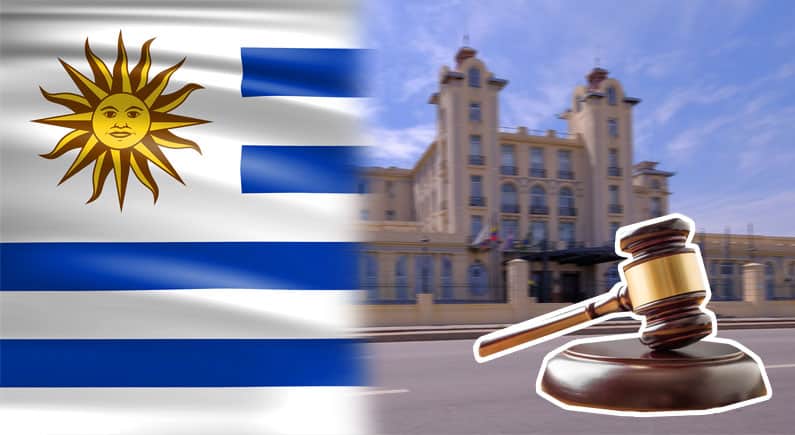 In Uruguay, the first Gambling regulation was used in 1819, years before the declaration of its independence (Libertad o Muerte became a reality on the 25th of August 1825). The first law was about legalizing the lottery. A few years later, in 1856 sports betting became legal. The state of Uruguay thought that the laws needed further clarification. So in 1882 a new law prohibited all forms of gambling. With the exception, of course, of lottery and sports betting.
In Uruguay, the first Gambling regulation was used in 1819, years before the declaration of its independence (Libertad o Muerte became a reality on the 25th of August 1825). The first law was about legalizing the lottery. A few years later, in 1856 sports betting became legal. The state of Uruguay thought that the laws needed further clarification. So in 1882 a new law prohibited all forms of gambling. With the exception, of course, of lottery and sports betting.
During the 20th century, four more gambling regulation followed. But all of them were about casinos. The last time that a gambling bill passed the parliament doors was in 1975. For the last 47 and more than two decades of the online gaming cosmogony still no online gambling regulation for Uruguay. Just a few amendments to the existing laws.
It is rather strange because Uruguay holds a reputation of being the most liberal state in Latin America. But punters of Uruguay can place bets on online platforms. It may be – technically – illegal. But still, they could continue their betting habits without having any legal problems.
Of course, they can’t do it on local companies – they are illegal and prosecuted – but they are free to do it on foreign gambling platforms. They operate outside of the jurisdiction of Uruguay, so not a problem. Well besides one. Taxes. And who can say no to new income additions? And they are sure that online gambling laws could be the key.
Thus Uruguay is now ready to join the other Latin American countries in gambling regulation. Last November, president Luis Lacalle Pou sighed a bill and sent it to the Senate. But it is not still a law of the State. Mainly because it is not a Gambling regulation for online gaming only. But it also has many references to casinos and slot machines. The conflict of interest has held back the attempt to regulate the market. Some experts on online gambling suggested that the president should follow the example of Brazil gambling regulation. So, there is a huge need to create a modern and efficient Gambling regulation. But our guess is that there is a lot to happen until then.
Betting regulation in Colombia
 The first gambling law in this country was passed in 2001. It was the first time that Colombians legislators decided to deal with this issue. All that time, since the country gain its independence from Spain in 1810, the authorities demonstrate a remarkable tolerance of gambling activities. And all that without any gambling laws. But at some point, they decided it was a time to gain something from this ever-increasing market and drive all the criminal activities out. And thus, the Colombian government created Law № 643/2001.
The first gambling law in this country was passed in 2001. It was the first time that Colombians legislators decided to deal with this issue. All that time, since the country gain its independence from Spain in 1810, the authorities demonstrate a remarkable tolerance of gambling activities. And all that without any gambling laws. But at some point, they decided it was a time to gain something from this ever-increasing market and drive all the criminal activities out. And thus, the Colombian government created Law № 643/2001.
But what is also remarkable is that this Latin American country was the absolute pioneer in including internet gambling regulation into its legal system. The amazing about this new law – the Law № 1753/2015 – was that it introduced all in one piece the Gambling regulation in the clearest way. Not many contradictory betting laws. Just one with all that matters. Colombia was not just the first country in the region to do so, but also became a role model for others.
Starting from the definition. According to № 1753/2015 online games are those conducted via interactive channels such as websites, mobile applications, and downloadable clients. It was useful legal thinking. The Colombian gambling regulation does not limit the available licenses. Literally, anyone can have one. As long as the applicant can prove that he can have the minimum equity requirement (placed at 450.000 dollars) and establish a local presence through a Colombia-placed company. Note that the license is not valid for horse racing betting and lotteries or numeric games.
As for the fees, the gambling platforms are under a 15% taxation rate for their gross gaming revenue. A percentage that might increase to 17% if the return to players will be under 83%. There is also an additional fee of 1% for royalties and 1% for the regulator’s administrative expenses. On the other hand, they don’t have to pay VAT. Players that win 400 dollars or more pay 20% of their gains as income tax.
Gambling laws in other Lat. Am countries
 Internet gambling regulation is the best way for many Latin American countries to increase their annual financial resources. But not all countries feel ready to pass laws that will regulate this very special market. Take Costa Rica for example. They feel the need to go on but they are not so sure how. So they started a one-year pilot program in March 2021. The JPS (Junta de Proteccion Social) that runs the program ask for a guarantee deposit of 250.000 dollars in addition to payment of exploitation rights. The chosen concessionaires have 30 days to put their platform into operation. They received six offers so far.
Internet gambling regulation is the best way for many Latin American countries to increase their annual financial resources. But not all countries feel ready to pass laws that will regulate this very special market. Take Costa Rica for example. They feel the need to go on but they are not so sure how. So they started a one-year pilot program in March 2021. The JPS (Junta de Proteccion Social) that runs the program ask for a guarantee deposit of 250.000 dollars in addition to payment of exploitation rights. The chosen concessionaires have 30 days to put their platform into operation. They received six offers so far.
In Bolivia, there is no Gambling regulation because as stated in Law 060 of Lottery and Chance games (25th of November 2010) “all profit wagers are prohibited”. It is an undeniable fact that Bolivian citizens seek betting providers to play casino games or place some bets. and this made the Bolivian government reconsider their point of view. At least to seek some jurisdictions that are similar to their reality.
In Paraguay there is a Gambling regulation that regulates sports betting, but not in the online edition. In-country Daruma Sam has had a gambling monopoly on sports betting since 2018, but its position raised questions. Online casinos on the other hand have been operating since 2018 without any problem. More than 20 operators grabbed their licences since then.
Peru may not have a specific online gambling regulation, but every operator can work without facing any kind of problem. Simply because “everything that is not expressly prohibited is allowed,” as the Magna Carta mentioned. But operators demand a modern Gambling regulation and government officials are considering it. probably with the addition of a special tax.
In the Dominican Republic at this point, there are operating four websites, 60 land-based casinos and more than 1.800 sports betting agencies. Things are looking to work just fine for the time being. But there is thought in the near future to make different licences for sports betting, another for casinos etc. According to experts, this will give a great boost to competition.
Finally, Panama does its first steps in sports betting and gambling. The director of Panama’s Gaming Control Board has declared his decision to help his country to have the first online gambling operator, Caliente.pa. Gambling regulation will follow.